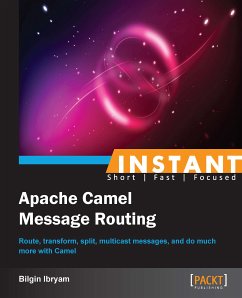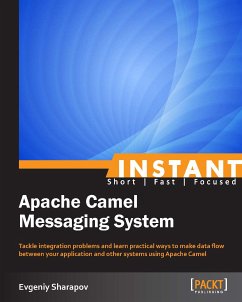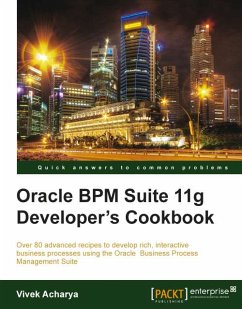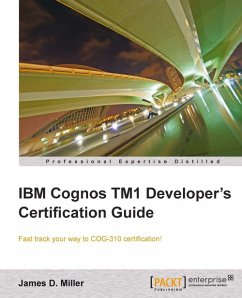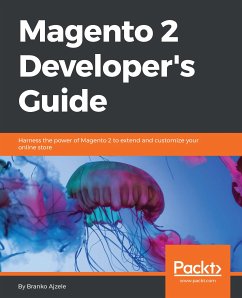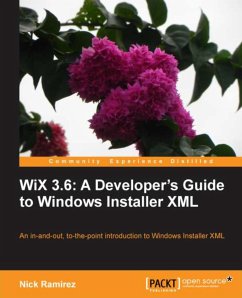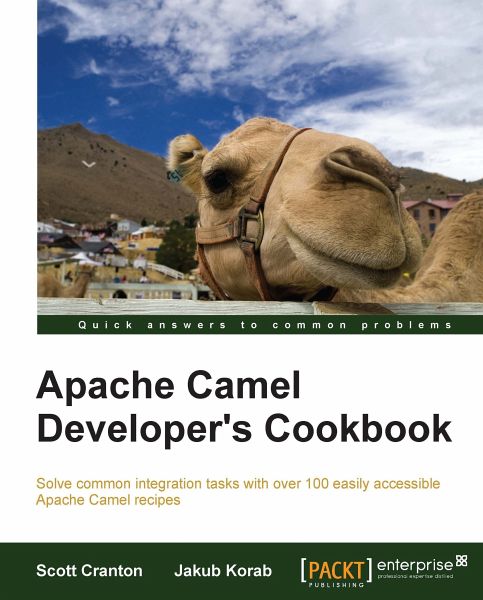
Apache Camel Developer's Cookbook (eBook, ePUB)
For Apache Camel developers, this is the book you'll always want to have handy. It's stuffed full of great recipes that are designed for quick practical application. Expands your Apache Camel abilities immediately.

PAYBACK Punkte
15 °P sammeln!
Apache Camel is a de-facto standard for developing integrations in Java, and is based on well-understood Enterprise Integration Patterns. It is used within many commercial and open source integration products. Camel makes common integration tasks easy while still providing the developer with the means to customize the framework when the situation demands it. Tasks such as protocol mediation, message routing and transformation, and auditing are common usages of Camel. Apache Camel Developer's Cookbook provides hundreds of best practice tips for using Apache Camel in a format that helps you buil...
Apache Camel is a de-facto standard for developing integrations in Java, and is based on well-understood Enterprise Integration Patterns. It is used within many commercial and open source integration products. Camel makes common integration tasks easy while still providing the developer with the means to customize the framework when the situation demands it. Tasks such as protocol mediation, message routing and transformation, and auditing are common usages of Camel. Apache Camel Developer's Cookbook provides hundreds of best practice tips for using Apache Camel in a format that helps you build your Camel projects. Each tip or recipe provides you with the most important steps to perform along with a summary of how it works, with references to further reading if you need more information. This book is intended to be a reliable information source that is quicker to use than an Internet search. Apache Camel Developer's Cookbook is a quick lookup guide that can also be read from cover to cover if you want to get a sense of the full power of Apache Camel. This book provides coverage of the full lifecycle of creating Apache Camel-based integration projects, including the structure of your Camel code and using the most common Enterprise Integration patterns. Patterns like Split/Join and Aggregation are covered in depth in this book. Throughout this book, you will be learning steps to transform your data. You will also learn how to perform unit and integration testing of your code using Camel's extensive testing framework, and also strategies for debugging and monitoring your code. Advanced topics like Error Handling, Parallel Processing, Transactions, and Security will also be covered in this book. This book provides you with practical tips on using Apache Camel based on years of hands-on experience from hundreds of integration projects.





